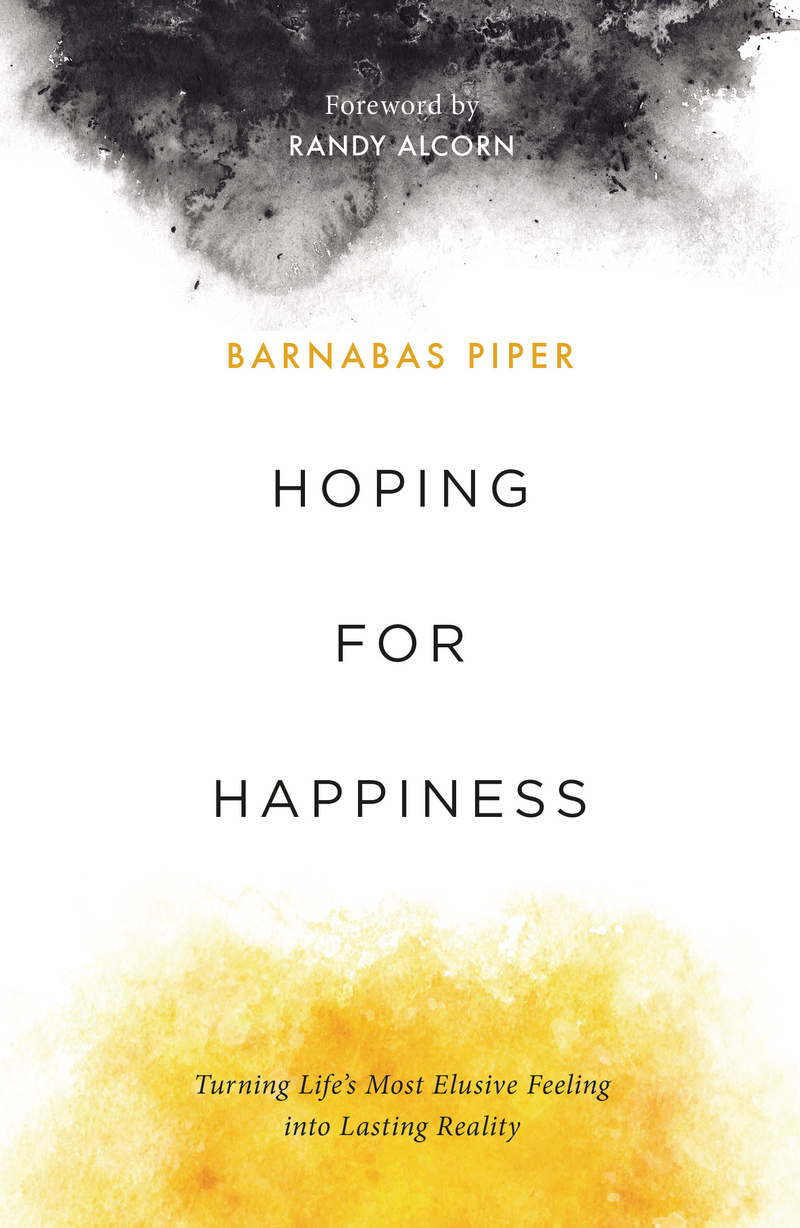It was only once I moved out and became responsible for my own home I began to covet adhesive-backed plastic hanging hooks. They seemed ideal for hanging pictures or dust mops or calendars… until I actually tried them.
I would position the hook just so, gingerly place the picture frame on it, and step back to judge if it was level. Satisfied, I’d go on with life until an hour or a day or a week later I’d be startled out of my skin by a loud crash.
Once my heart rate slowed and I determined there wasn’t a burglar or poltergeist, I’d find the frame twisted and broken with the hook lying nearby, completely detached from the wall. It simply wasn’t strong enough to hold the weight. And yet, for some reason, I’d just grab another hook and try again.
Hanging Our Happiness On Weak Hooks
We hang happiness on hooks the same way I hang pictures, thinking that our jobs, for example, can bear the weight of our expectations. The problem, though, is that our expectations for happiness are too heavy for the hooks we use.
Rarely, if ever, do we consider whether our hooks are strong enough to support the happiness we expect.
Should We Hope for Work to Make Us Happy?
It’s always exciting when you see an announcement on social media of someone starting a new job. For the first few weeks they’ll post regularly about how thrilled they are about this “new adventure” and how great their co-workers are, sharing pictures from the new office.
they’ll post regularly about how thrilled they are about this “new adventure” and how great their co-workers are, sharing pictures from the new office.
Then, over the next few weeks, the posts will slow to a trickle then dry up completely. This is what I like to call the “Expense Report Pivot”—the moment when reality has set in and they realize this “dream job” involves some level of drudgery too.
The day-to-day reality of what they hoped would change their lives turns out to not be all that glamorous or exciting. The hook of a new job could not hold the weight of their hopes for it.
Why Work Can’t Support All Our Happiness
So before long, they search for another hook just like the last one but in a different place. Most of us quietly believe that work can support the weight of our happiness.It’s a belief encapsulated by a guy who told me, “Man, if you don’t love your job you should quit and go find something else.” All we have to do is keep looking for that perfect job, the one we just love, that truly grand adventure. It is a seductively believable attitude. If only it was true.
Switching jobs is not sin; it can be good and necessary. Sometimes a work situation is untenable because of poor fit, poor leadership, unethical practices, or the like. Sometimes we need to find a new job because we cannot support ourselves or our family financially. Sometimes God makes it clear that we should pursue something new.
None of these reasons is based in, “I just don’t love it.” None of them is seeking to move our happiness from one weak hook to another.
Adjusting Our Expectations About Work-Related Happiness
Work is a good hook for the right expectations. We were created by God to be workers. In Genesis 1 and 2 God gave mankind “dominion” over the earth. He gave Adam a garden to cultivate and the task of naming every animal.
From the very beginning work has been part of our purpose, and at its best, work does make us happy because it allows us to exercise our talents, use our creativity, partner with other people, do something beneficial for others, and find a measure of fulfillment.
But work cannot fulfill our dreams or make us lastingly happy: “Whatever your hand finds to do, do it with your might, for there is no work or thought or knowledge or wisdom in Sheol, to which you are going” (Ecclesiastes 9:10).
We work hard now, and our work matters in this life.
We work for the good of family, society, and self but not to find eternal meaning or identity.
Finding True, Lasting Happiness
Work— like many other things in life- is a means of finding happiness. It’s designed by God and is a good thing. It’s a good hook for the right things, but too weak to hold our hopes for total happiness.
Take a look back at your experiences with jobs. Can you think of a time when you experienced the hook break? What weighty expectations were you placing on work? What other weak hooks are you relying on for happiness?
It’s incumbent on us to be aware of our expectations and gauge whether they align with reality and what is true according to God. We are not doomed to repeat this cycle of shattered hopes and broken happiness. There is a way to get expectations right and find strong hooks on which to hang them—there is a way to be happy.
 This is an excerpt from Hoping for Happiness by Barnabas Piper. A biblical framework for living a grounded, hopeful, and genuinely happy life, this book gets far beyond the topic of work and helps us to throw off both the unrealistic expectations that end in disappointment and the guilty sense that Christians are not meant to have fun.
This is an excerpt from Hoping for Happiness by Barnabas Piper. A biblical framework for living a grounded, hopeful, and genuinely happy life, this book gets far beyond the topic of work and helps us to throw off both the unrealistic expectations that end in disappointment and the guilty sense that Christians are not meant to have fun.
